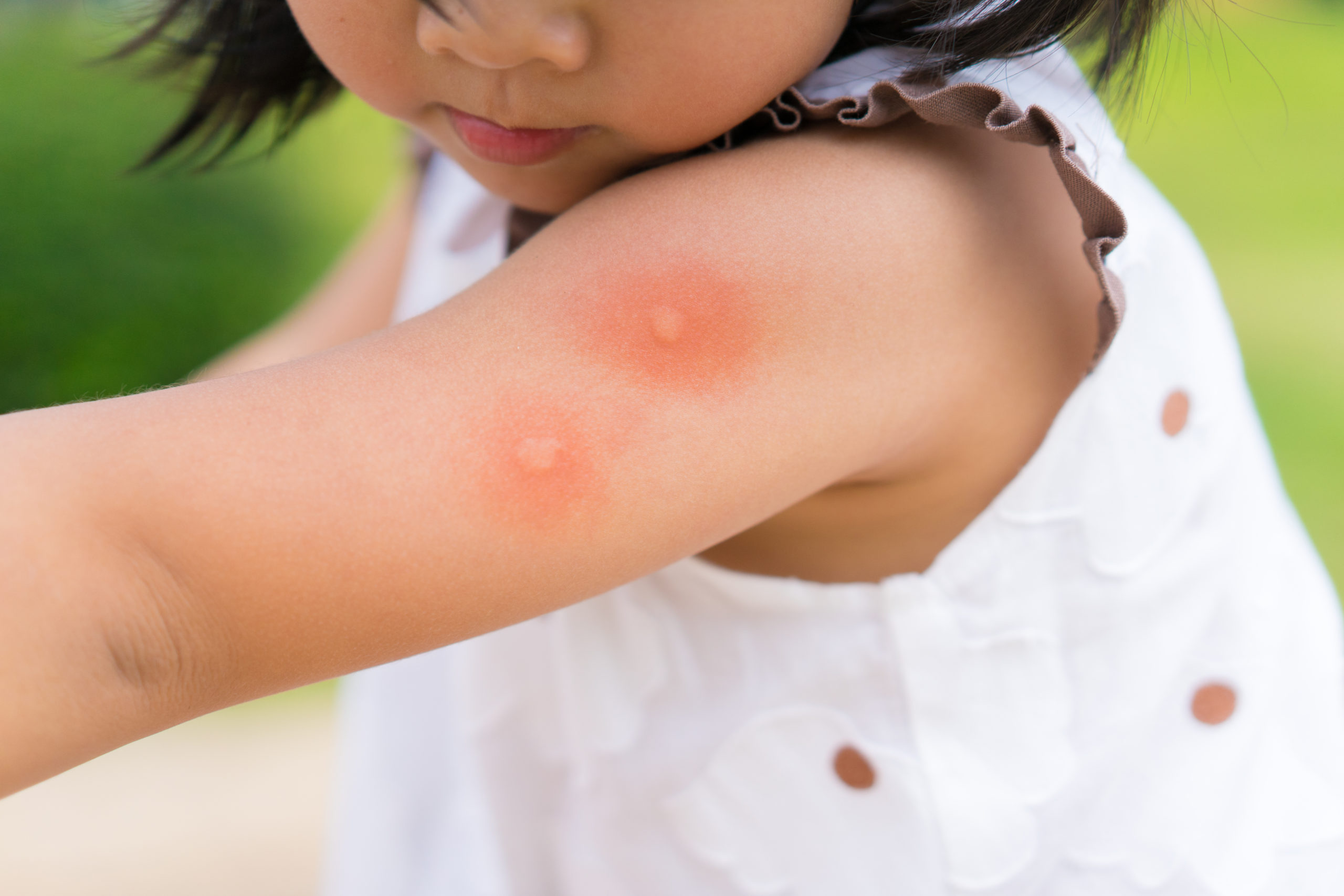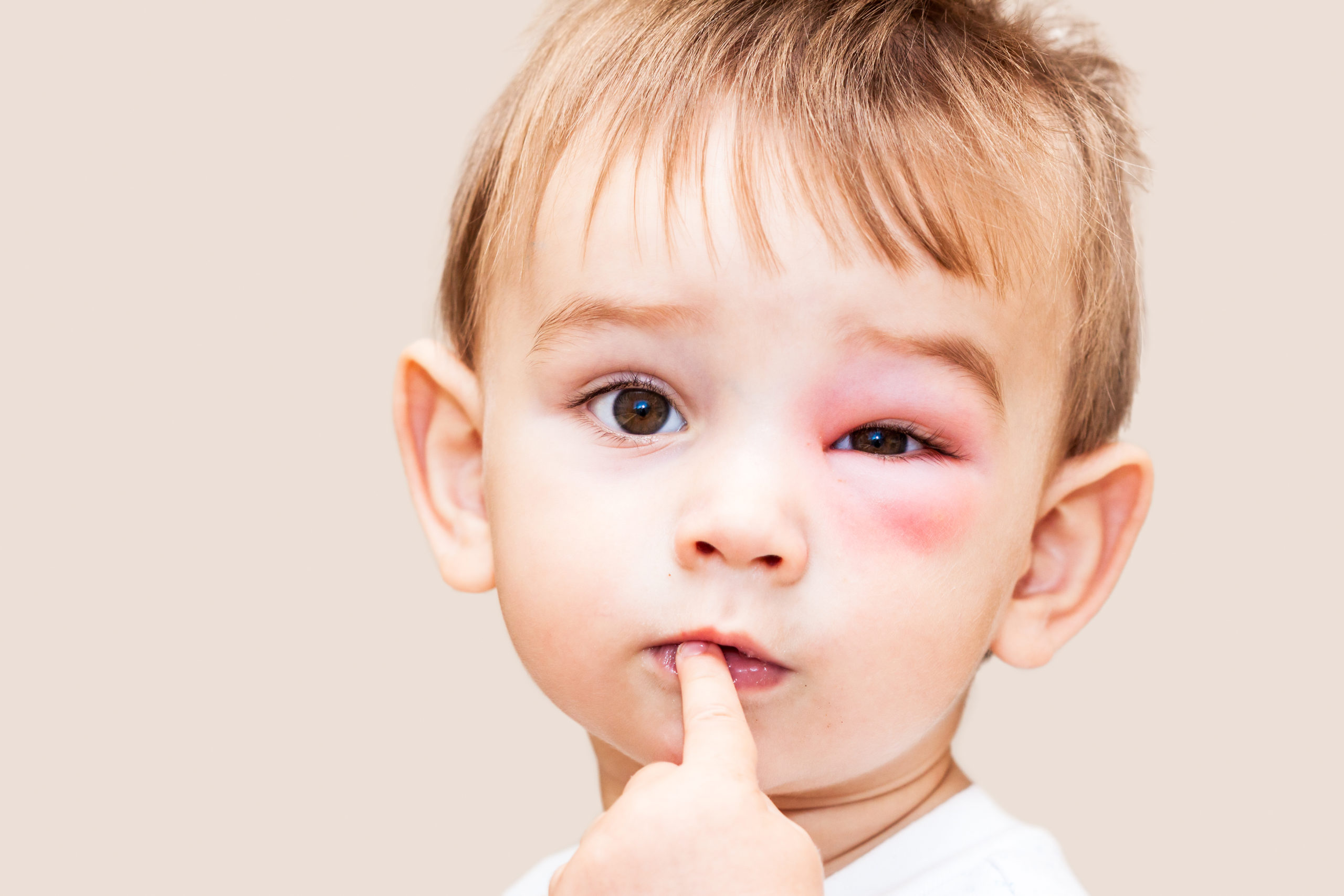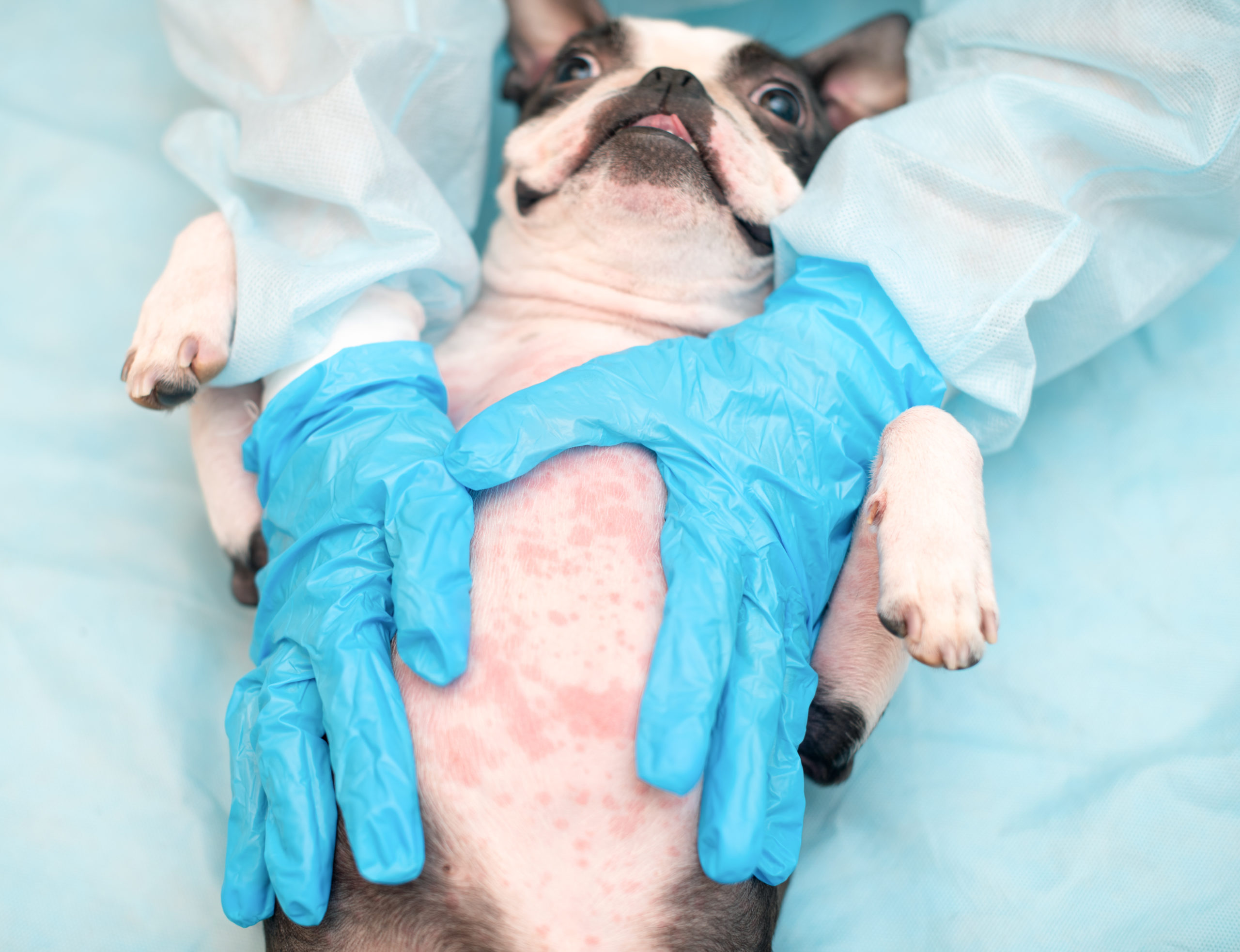Pests and Allergies
Pests and Allergies
An Overwhelmingly Common Allergy
Mosquitos are one of the most common pests on the planet, and they are also responsible for causing one of the most common immune responses as well. When mosquitos bite their victims, they will inject some of their saliva into the wound. This saliva contains enzymes that act as an anti-coagulant to improve blood flow and proteins that trigger a mild immune response. This response involves the immune system releasing a histamine, which helps white blood cells access the affected area and leads to the inflammation. The histamine also sends a signal to the nerves around the bite, and it is this very signal, along with the swelling, that causes the itchy sensation.
While this minor allergy response is practically universal for people, there are a few rare cases where people’s immune systems do not have this reaction. Some people are born with this immunity to mosquito saliva, while others have been found to build up a tolerance over significant time. For most people however, this immune reaction will last for a few days to a week depending on whether the bite area is left alone or not.

Roaches and Asthma
In 2008, the World Health Organization confirmed that there was no “definitive evidence that cockroaches are vectors for human disease.” Furthermore, the CDC confirms that roaches do not bite, meaning they cannot pass pathogens from person to person through this manner similar to ticks or mosquitos. However, while they may not be a true vector of diseases, this does not mean that they, and other similar pests, aren’t a major health risk for people. Roaches leave behind a considerable amount of debris as they slink through your home. They leave droppings, saliva, shed skin shells, severed body parts, and more, all of which can leave behind pathogens, or even become airborne debris. Once airborne, these allergens are known for causing severe breathing complications for people with asthma or other breathing difficulties.

Stinging Pests
Unfortunately, an allergy can turn a typically benign encounter with a pest into a fight for life and this kind of dangerous reaction is often attributed to stinging pests. The dangers and effects of wasp, yellow jacket, etc. venom can vary drastically from one species to the next, but their attacks typically happen as a swarm, increasing the health risks of such an encounter by their sheer numbers.
If you’ve unfortunately been stung (whether you have a known allergy or not), make sure to follow these steps to stay safe:
- Inform others around you and seek immediate medical attention.
- Be sure to inform others and medical staff of your past reactions to stings/known allergies.
- Pull any remaining stingers out! The longer a stinger is in, the more venom is able to seep into your skin. A great way to cleanly remove a stinger is by using a straight edged object and swiping it across the area – you can even use your fingernail for this. Recent research has shown that it’s just important the remove the stinger as quickly as possible.
- Wash the area with soap and water.
- Apply a cold compress to reduce swelling.

Systemic Reactions from Bed Bugs
Typically, bed bugs leave behind small, itchy, red bumps that will go away on their own in a matter of a week or two. In rare cases however, people may experience adverse reactions to the bites including blisters, swollen tongue, fever, nausea, hives, or large red sores. These are typically signs of allergic reactions and if such symptoms occur, it is advisable to seek immediate medical attention. However, new research has shown that such reactions can begin to occur after receiving repeated bites from bed bugs even if the victim did not have such reactions to begin with. These systemic reactions begin in a localized region before spreading throughout the body affecting different organs and systems. Some of these reactions include lethargy, fever, profuse sweating, chest tightness, respiratory strain or distress, irregular heartbeat, asthma attacks, pruritis (sever itching of the skin), or even anaphylaxis. Luckily, these allergy and systemic reactions are very rare, but it is important to be aware of the risks and seek medical assistance if you experience such symptoms from bites.

Fleas and Our Furry Friends
Fleas tend to feast on the blood of our beloved furry friends such as cats and dogs. A common condition for both is called flea allergy dermatitis (FAD) which results from the bites of these nasty insects. When fleas bite, their saliva is injected into the dermis of their victims. This saliva can cause an immune response in dogs and cats, resulting in intense itchiness and skin irritation. The more serious the FAD, the more hair loss your furry friend will experience and, in severe cases, aggressive rashes and skin infections can even occur.

Staying Safe
At Green Pest Services, your health and safety are our top priorities. We have years of experience, training, and in-depth knowledge about pests and how to treat them safely so that you and your family are protected from any potential health risks they may pose. If you are concerned about pests, give us a call today!

Citation
Bed Bugs FAQs (2020) Centers for Disease Control and Prevention. The Global Health Division of Parasitic Diseases and Malaria. Available at: https://www.cdc.gov/parasites/bedbugs/faqs.html (Accessed: September 2020).
Biswas, J. (2018) What to do in a Bee Attack: 5 Things You Need to Know, ABC News. Available at: https://abcnews.go.com/US/bee-attack-things/story?id=56663013 (Accessed: July 2020).
Brouhard, R. (2020) Systemic Reaction Through the Body, Verywell Health. Edited by M. Menna. Available at: https://www.verywellhealth.com/systemic-reaction-1298693 (Accessed: November 2020).
Burgess, L. and Seladi-Schulman, J. Ph.D. (2018) Why do mosquito bites itch? Causes and treatment, Medical News Today. MediLexicon International. Available at: https://www.medicalnewstoday.com/articles/320979#overview (Accessed: January 19, 2021).
Davidson, O. (2016) Summer Safety: How to Avoid Bee-Swarm Attacks, Scientific American. Springer Nature America. Available at: https://www.scientificamerican.com/article/summer-safety-how-to-avoid-bee-swarm-attacks/ (Accessed: July 2020).
The Hidden Dangers of Flea Bites: What to Look For (no date) The Associated Press. Seresto. Available at: https://apnews.com/sponsored/?prx_t=z40EAq48yAniAPA&prx_ro=s&ntv_fpc=671dc30c-79c6-4e77-b41f-040c722e9642&ntv_fr (Accessed: September 2020).
Hill, C. and MacDonald, J. (2008) Fleas, Purdue University . Purdue’s College of Agriculture: Entomology Department. Available at: https://extension.entm.purdue.edu/publichealth/insects/flea.html (Accessed: September 2020).
Holland, K. (2019) Everything You Need to Know About Bed Bug Bites, Healthline. Medically reviewed and edited by C. Cobb, DNP, APRN, WHNP-BC. Available at: https://www.healthline.com/health/bed-bug-bites#pets (Accessed: September 2020).
Huizen, J. (2020) Bed Bug Bites: What You Need to Know, Medical News Today. Medically reviewed and edited by D. Sullivan, Ph. D., MSN, R.N., CNE, COI. Healthline Media. Available at: https://www.medicalnewstoday.com/articles/318083#control (Accessed: September 2020).
Mayo Clinic Staff (2019) Bedbugs, Mayo Clinic. The Mayo Foundation for Medical Education and Research. Available at: https://www.mayoclinic.org/diseases-conditions/bedbugs/symptoms-causes/syc-20370001 (Accessed: September 2020).
Mosquitos (2019) National Geographic. National Geographic Partners. Available at:
https://www.nationalgeographic.com/animals/invertebrates/group/mosquitos/ (Accessed: April 2020).
Mosquito Bites (2020) Mayo Clinic. Mayo Foundation for Medical Education and Research. Available at: https://www.mayoclinic.org/diseases-conditions/mosquito-bites/symptoms-causes/syc-20375310 (Accessed: January 19, 2021).
Mosquito-Borne Diseases (2016) Centers for Disease Control and Prevention. National Institute
for Occupational Safety and Health. Available at: https://www.cdc.gov/niosh/topics/outdoor/mosquito-borne/default.html (Accessed: April 2020).
Pointer, K. and Sullivan, D. Ph.D. (2019) Why Mosquito Bites Itch and How to Stop Them, Healthline. Healthline Media. Available at: https://www.healthline.com/health/why-mosquito-bites-itch#outlook (Accessed: January 2021).
Prevention and Control: Fleas (N/A) Illinois Department of Public Health. The Division of
Environmental Health. Available at: http://www.idph.state.il.us/envhealth/pcfleas.htm (Accessed: May 2020).
Study: Bites Can Induce Potentially Deadly Systemic Reactions (2017) Pest Control Technology. Available at: https://www.pctonline.com/article/study-bites-can-induce-potentially-deadly-systemic-reactions/ (Accessed: November 2020).

